MercoPress. South Atlantic News Agency
Tag: Mauricio Macri
-
Thursday, May 16th 2019 - 09:56 UTC
Santa Fe will host Argentina's first 2019 presidential debate

Argentina's first presidential debate of the 2019 election will take place in Santa Fe province, the Noticias news magazine confirmed on Tuesday. The event will be held at the auditorium of the National University of the Littoral (Universidad Nacional del Litoral), in Santa Fe City, after the PASOs.
-
Thursday, May 16th 2019 - 09:52 UTC
April inflation in Argentina eases but reaches 3.4% and an annualized 55.8%
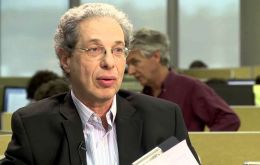
Argentina released April inflation numbers on Wednesday, with the monthly price rise easing to 3.4% - high by international standards, but below market expectations and reversing an acceleration trend that began in January.
-
Thursday, May 16th 2019 - 09:44 UTC
Argentina's unions decided a 24-hour national strike on 29 May

Argentina’s biggest labor union on Tuesday called for a 24-hour national strike to protest the government’s austerity policies, heaping pressure on President Mauricio Macri as he battles against a biting recession and jittery markets.
-
Monday, May 13th 2019 - 17:03 UTC
Armed man arrested in Argentina’s presidential office: he wanted to meet with Mauricio Macri

An armed man was arrested in the Casa Rosada, Argentina’s presidential office, who tried to enter on the grounds that he had an audience with President Mauricio Macri. The suspect was carrying a box with a Magnum 44 Taurus revolver and was arrested by the Military House before entering the building, according to information from the Government office in Buenos Aires.
-
Thursday, May 9th 2019 - 09:57 UTC
Trump spoke to Macri to strongly support Argentina's economic reforms
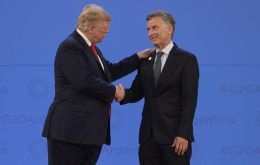
US President Donald Trump spoke with Argentina's leader Mauricio Macri on Wednesday and voiced support for the country's economic reforms, the White House said in a statement.
-
Thursday, May 9th 2019 - 09:19 UTC
Cautious support from the Catholic Church to Macri's call for a national consensus to secure stability

Argentina’s bishops have offered tentative backing to the country’s president in securing a national consensus on politically sensitive issues, in a move that could be construed as giving a boost to a conservative incumbent facing a stiff challenge from a former populist president with an ambivalent history with both the current pope and the local church he once led.
-
Wednesday, May 8th 2019 - 12:54 UTC
IMF mission arrives in Argentina: Central bank policy, inflation and revenue in the agenda
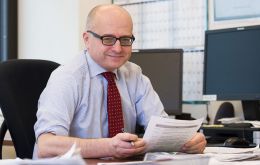
A new IMF mission is expected in Argentina this e Wednesday for the fourth review of the country's economic plan which is supported by a 36 month stand-by credit from the multilateral financial institution. It's the first IMF visit since Argentina's Central Bank major strategy change in the foreign exchange market to avoid another meltdown of the Argentine currency.
-
Tuesday, May 7th 2019 - 09:56 UTC
Macri hopes to strike a political understanding with arch rival Cristina Fernandez
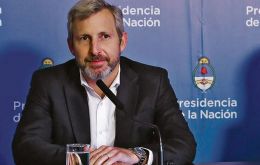
Argentina's president Mauricio Macri is looking to strike an accord with political rivals, including nemesis Cristina Fernandez de Kirchner, in a bid to calm volatile markets ahead of presidential elections towards the end of the year.
-
Tuesday, May 7th 2019 - 08:32 UTC
Pope Francis tells Argentine bishops he desires to visit his homeland in the near future

Despite stating at the outset that he didn’t like travel and didn’t plan to do much of it, during the first six years of his pontificate Pope Francis made close to 30 international trips, including visiting virtually every country of Latin America. Yet there’s one glaring exception: his home country, Argentina and neighbouring Uruguay.
-
Wednesday, May 1st 2019 - 03:10 UTC
Tens of thousands demonstrated in partial strike in Argentina; unions divided as to how face Marci’s austerity measures
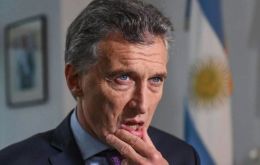
Tens of thousands of Argentines demonstrated on Tuesday in a partial strike that grounded airplanes and shut banks and other businesses to protest the economic policies of President Mauricio Macri.
